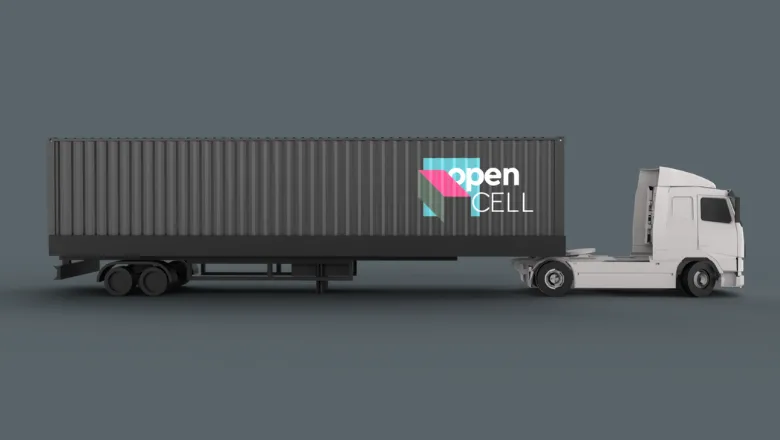I am grateful to OpenCell and enthusiastic to be involved in this innovative project. The modular testing laboratories provide a large number of tests using automation and can be moved easily and rapidly deployed to local communities. This is one great example of multi-disciplinary collaboration across academic, clinical and commercial settings providing immediate impact.
Dr Davide Danovi, School of Basic & Medical Biosciences, King's College London
21 May 2020
First-ever shipping container labs for COVID-19 testing
Researchers from King's have joined a multidisciplinary team led by OpenCell.bio that has developed a low-cost, rapidly deployable COVID-19 testing lab inside a shipping container that can process up to 2,400 tests per day.

These CONTAIN labs are the first example of a fully functional, mobile modular laboratory that can be immediately deployed anywhere in the world. The labs also offer individuals online results within 5 hours using a QR-barcode unique identifier system.
The labs only require one operator at a time as the team have used low-cost liquid handling robots to automate most of the workflow and perform a qPCR (the gold-standard nucleic acid detection test) to detect the presence of the SARS-CoV-2 virus.
The team has relied on open-source processes and chemical reagents that are compatible with the Centre for Disease Control’s international guidance. This circumvents current supply chain restrictions caused by proprietary equipment currently employed for testing. Like software which only runs on Mac or Windows, current COVID test equipment manufacturers ensure users can only employ the manufacturer's own test kits and consumables. This is the source of much of the current supply chain issues as there are only a handful of companies with COVID diagnostic systems on the market.
Lead author, Kenneth Walker, OpenCell, states: “We managed to bring together an experienced team in a short space of time and in particular solve the big challenge of doing tests quickly and at low cost. The automation work required was a big step and this is the first time a team has done this with open-source robotics that don’t cost the earth.”
This work is a vital step to increasing the number of accredited labs capable of performing COVID testing. Through Innovate UK support as well as an incredible team we are working closely with regulators to ensure our testing lab system remains capable of high quality, low cost and meets the rigorous standards required to perform population testing.
Helene Steiner, OpenCell CEO
Dr Mark Zuckerman, Head of Department, South London Specialist Virology Centre, King’s College Hospital has been working with clinical colleagues and scientists to rapidly transform the department in response to the COVID crisis and said: “We are seeking to fast track the required accreditation to make these laboratories available nationally and internationally to control the pandemic in workplaces, schools and care homes to help us all return to normal life.”
The validation data and open-source protocols have been published here on the BioRxiv database, to share COVID-19 testing information as it develops.
